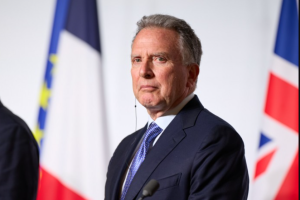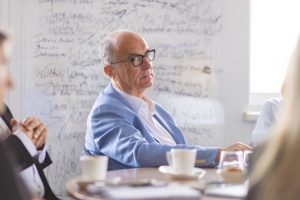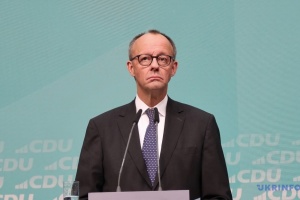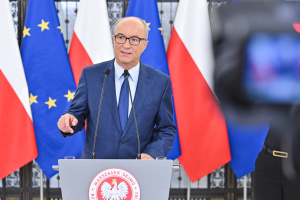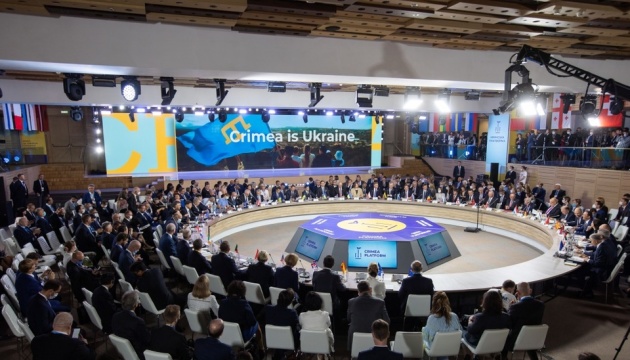
Crimea Platform: results and prospects as per Ukrainian experts

On August 23, Kyiv hosted perhaps the most important international event since Ukraine restored independence – the Crimea Platform summit, attended by government delegations from as many as 45 countries, including all EU member states, the United States, Georgia, Moldova, Turkey, Northern Macedonia, Australia, New Zealand, Japan, Canada, Iceland, as well as a wide range of international organizations. Among participants were nine presidents, four prime ministers, 14 top diplomats, and other major politicians and diplomats. Ukraine hopes that the Platform will become a permanent venue that will help Ukraine regain Crimea snatched by Russia in 2014: "Our main goal is to get Crimea back on the topical agenda of the international community, first of all – of our partners and neighbors."
Therefore, Ukraine has reminded the world that the occupation of Crimea is a gross violation of international law, the Yalta system, and the Helsinki principle of inviolability of borders: "Tolerating the occupation of Crimea is a precedent that can be applied in Southeast Asia, the Middle East, and Europe – wherever an irresponsible power may wish to seize part of its neighbor's territory by force."
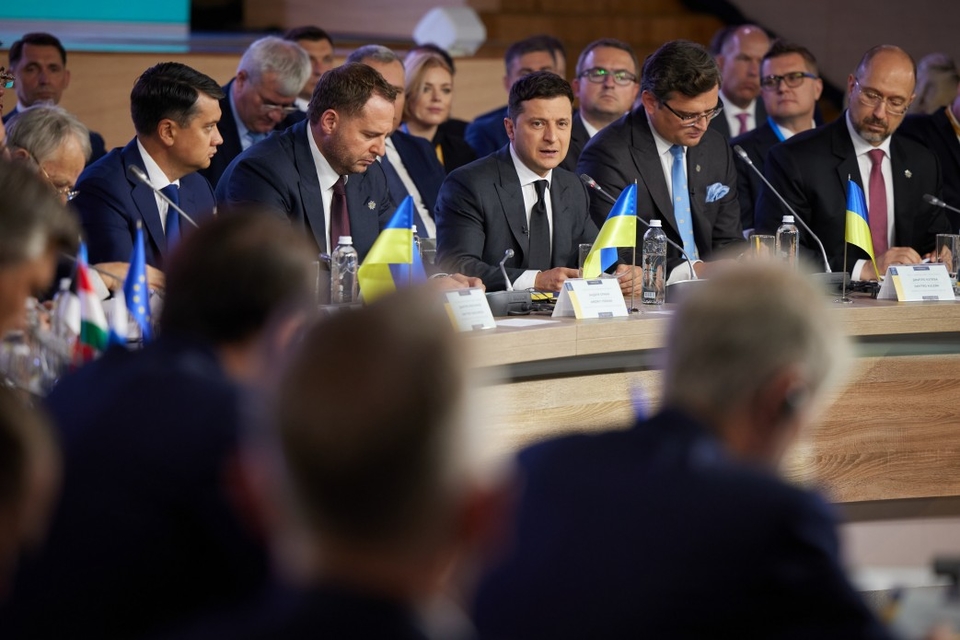
Russia's ongoing militarization of the peninsula was also noted: “It poses both a security and environmental threat on a regional and, possibly, global scale. No one can guarantee that Russia won’t turn Crimea into a nuclear proliferation zone."
Finally, during the Summit, Ukraine drew global attention to massive oppression and rights violations of targeting the indigenous people of Crimea, Crimean Tatars: "This is not just a violation of human rights, this is a potential religious conflict that may ensue in the coming years if the situation doesn’t change <…> When Russians came to Crimea, they destroyed religious freedom and began to oppress religious communities that enjoy freedom both in Ukraine and in neighboring countries in the region. At least these three reasons are sufficient to share our concern about the situation with our partners across the world."
At the same time, on August 23, another major, unprecedented event took place in the Ukrainian capital – the Kyiv Summit of First Ladies and Gentlemen, dedicated to "soft power in the new reality." It was attended by the first ladies of Ukraine, Brazil, Israel, Costa Rica, Latvia, Lithuania, Serbia, Germany, and Croatia, as well as the spouse of the European Council President and the daughter of the President of Lebanon.
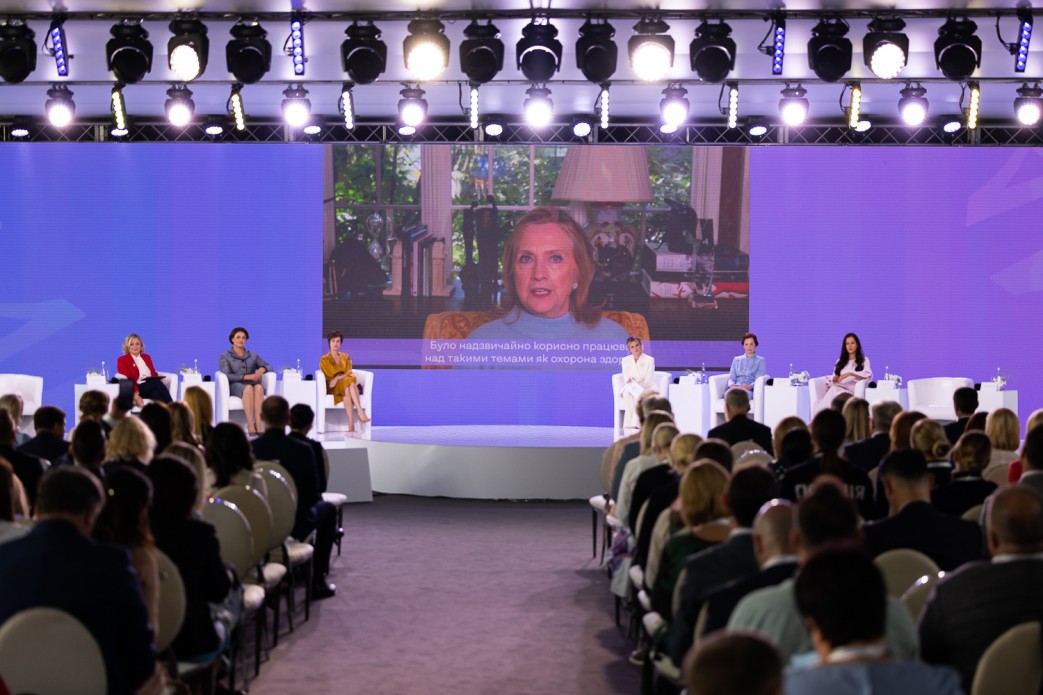
The summit was joined by distinguished guests, including Hillary Clinton, First Lady of the United States (1993-2001), former Secretary of State (via video link); an American actress and public figure, known for her role of a U.S. First Lady in House of Cards by Netflix, eight-time Emmy nominee and Golden Globe winner Robin Wright; American essayist, author of the best-selling Black Swan and Antifragile, Nassim Nicholas Taleb, as well as an Afghan film director and first female CEO of the state-owned Afghanfilm, Sahraa Karimi. The latter called on the first ladies and the world "not to be silent about the situation in Afghanistan": "Tell your men not to recognize those who restrict the freedom of women, children, and artists. I know you are mothers – you have wonderful daughters and sons. You have a wonderful life. In Afghanistan, many women want the same. I appeal to you and ask with all my heart: use your power, do not remain silent about what is happening in Afghanistan."
As for the Crimea Platform Summit, we asked a number of Ukrainian experts to assess its tentative results, as well as to share their views on the Platform’s prospects.
“Ukraine is setting up an international institution. Let's see how it works out…”
At the moment, it is difficult to offer any solid assessment of the event. By definition, however, the Summit is a thing now,” international lawyer Borys Babin told Ukrinform.
Also, all attempts by both the aggressor power and political competitors to somehow water down or level its significance have failed.
"In general, I assess the situation positively. It’s clear that the aggressor power had been ‘preparing’ for the Summit, doing everything possible to disrupt and compromise it, including by exerting pressure on our partners in order to minimize the number of participants. I'm not saying they didn't succeed at all, perhaps they did influence the situation somewhere, conditionally speaking – maybe some minister was supposed to arrive but instead, the ambassador came… But the Russians failed to accomplish anything fundamental."
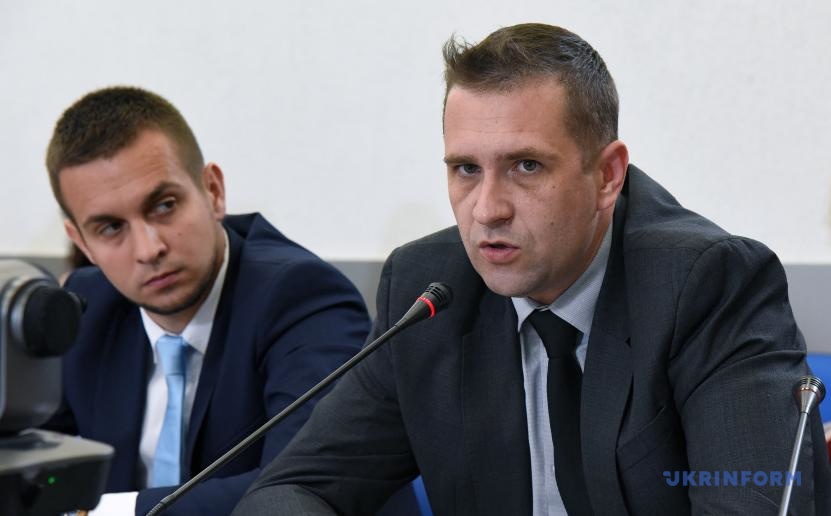
The Crimea Platform is today the face of civilized nations. "It can be stated that Russia’s pressure attempts just don’t work on civilized countries," Babin added.
But what will be the prolonged outcome of the Summit? It is currently difficult to predict. But "the summit is quite correctly referred to as an inaugural one,” the expert said. “It has stated exactly how the Crimea Platform (CP) would operate – as a mechanism of communication between diplomacies,” Babin added. “Also, a corresponding office will launch its work in Kyiv."
However, the question arises: how exactly will the participating states be involved in all these processes? Will it be something beyond the fact that Ukraine is setting up some state institutions in Kyiv? Will interstate dialogue or some interstate permanent body be set up? "It's really a major challenge. Because if we "encapsulate ourselves, focusing on own officials," it will mean that the project is more intra-Ukrainian, which can’t be allowed."
The project’s main task lies in its international dimension. Therefore, all permanent structures of the CP must involve member states. "Our Foreign Ministry, together with colleagues from other countries, must work out a mechanism for their participation. In fact, Ukraine is establishing an international institution. Let's see how it works out," Borys Babin stressed.
The platform has sent an important signal: the issue of deoccupation of Crimea has not been removed from the international agenda
"The general feeling is that the Ukrainian side at this Summit tried to put it the following way: enough words – do something! And I absolutely agree with that," said Pavlo Lakiychuk, head of military security programs at the Center for Global Studies Strategy XXI.
Simply put, the Ukrainian side, the expert explains, tried to take the issue of Crimea deoccupation from the realm of words and turn it into concrete action. "Unfortunately, in my personal opinion, we heard some general statements of support from foreign partners: on the rejection of the occupation, readiness to support us in the issue of territorial integrity, and so on. We hear this all the time, and it's good, but I see a downside to it. This testifies to the fact that the international community is not yet ready for any concrete, decisive action on the flagrant violation of international law,” said Lakiychuk.
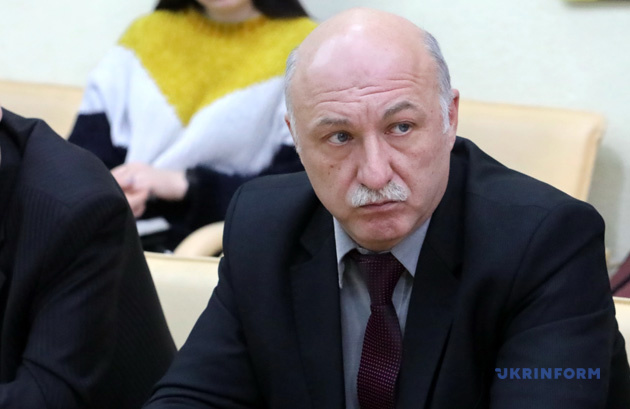
On the positive side, the Summit turned out to be an event where communication was established. “And this is a positive thing. After all, developing approaches is the first step to solving the problem,” he said.
Just today, the expert continues, came the report that the five countries – the United Kingdom, the United States, Canada, Sweden, and Switzerland – are launching a fund to help Ukraine ("Partnership for a Resilient Ukraine" – ed.), which will accumulate funds to support the country, including in its struggle in the Crimea issue. "In my opinion, this is also the result of the Crimea Platform. And I hope that there will be more such results, that there will be a transition from numbers to quality. In any case, the foundation has been laid. The Summit was truly significant. And I think it wasn’t in vain. The Platform sent an important signal that the issue of deoccupation of Crimea has not been removed from the agenda," Pavlo Lakiychuk added.
Platform’s façade: bright, solemn, attractive, and festive. But…
An economist and expert on the temporarily occupied territories, Yuriy Smeliansky, generally agrees with previous speakers, saying that any event held to discuss the Crimea issue is a positive thing: "Once again, our Western partners have reaffirmed their stance in support of Ukraine's territorial integrity and non-recognition of the Crimea annexation attempt, declaring their readiness to help Ukraine restore its territorial integrity. It would be very desirable though that time, as well as the national interests of each partner state, doesn’t affect this position. On a larger scale, this is a bright picture that inspires victorious feelings. This doesn’t define though whether this victory can be final or just a step along the way ... In general, the first perception is this: "the facade of the Crimea Platform is bright, solemn, attractive, and festive, so it can’t but generate a positive perception.” But, in addition to the façade, there’s always a hidden “interior” part.
This interior is the content, the senses that are being formed, the goals, and the tactics of achieving them. So far, this is an issue, says Yuriy Smeliansky. “For the eighth year already, our Western partners have been explaining to the Ukrainian authorities that putting an end to the {Russian – ed. ) occupation of Crimea is a matter that precisely Ukraine has to deal with. And our partners are ready to help in this regard. The emphasis on "helping" was at the heart of almost all addresses by foreign guests of the Summit. But we often extend the rhetoric about the need to get help with an emphasis on "do it for us," thus suggesting that the lesson hasn’t been learned,” the expert said.

He also noted another important point: “There was no place for Ukrainian experts to express publicly their opinion on the Crimea issue – it was only on the sidelines. Our Western partners and Ukrainian officials have been telling us what’s up. And everyone was channeling their own thing. There was a choir of officials from Western partner states and a smaller choir of Ukrainian officials. Everyone sang in different keys, although the defining chords sounded the same: "Crimea is Ukraine. And Ukraine is Crimea." Another negative point, I believe, is that the paradigm of “peaceful deoccupation” is being pushed forward in the Crimea issue. That’s if someday the time will come and Russia will just withdraw from Crimea. But things don’t happen that way. Deoccupation is always some sort of an operation, where only the intensity of hostilities may vary from zero and further up the scale."
As for the prospects, the expert suggests, there are two main scenarios.
The first, undesirable, option is to implement the "façade" formula. In this case, Ukraine shouldn’t expect positive results from a strategic perspective. "The formula of the ‘bright façade’ without the corresponding ‘interior works’ provides neither deoccupation, nor reintegration of the Crimean peninsula. The ‘bright façade’ implies that Ukraine hopes exclusively on ‘peaceful deoccupation.’ That is, on something that just doesn’t exist as such. You may enjoy the ‘façade paintwork’ for a while until the rain ultimately washes away this “bright color of joy,’” he said.
The second option, the desirable one, is for the Crimea Platform Summit to become a turning point in forming a transparent, unambiguous, and consistent state policy toward the temporarily occupied peninsula, "which will lay grounds for future deoccupation of Crimea and, at the same time, kickstart the process of reintegration of the peninsula as an integral part of the single Ukrainian space," Yuriy Smeliansky emphasized.
The Summit is over, and now we have serious and extremely hard work ahead
"I will not applaud anything because we’ve already heard too much of that. The Summit was a historic event, indeed. But it’s over now. There are many things in the Declaration signed by the participants. I’d like to draw your attention to those diplomatic and rounded formulations that may raise a number of questions," said Andriy Klymenko, editor-in-chief of BlackSeaNews and head of the Monitoring Group at the Institute for Black Sea Strategic Studies.
For example, the word "sanctions" is never mentioned in the declaration. Instead, it reads very cautiously: "[C]onsider further political, diplomatic and restrictive measures towards the Russian Federation, if provided for by the legal jurisdiction of each Participant and in line with respective procedures, when appropriate and should Russia’s actions so require." There’s nothing dramatically wrong here. However, "it is no secret that among the EU and NATO member states there are those who aren’t very happy with the sanctions as such. This doesn’t apply, for example, to Poland, Romania, the Baltic States, Great Britain, and the United States,” the expert said. “But a number of countries retain deep political and business ties with Russia. And this, of course, is a problem that the Ukrainian side should address – by persuasion, by working individually with these countries to make it clear to them that there is no special choice that the world has: it’s either sanctions or war.” Let’s add that “war” is not necessarily about the shooting.
The Ukrainian side must somehow counter the atmosphere of fear of new sanctions. "This requires creating a strong coalition among EU countries. It is necessary for Ukraine, together with Poland, the Baltic States, Romania, etc., to actively provide iron-clad arguments. Without this, the Crimean Declaration may remain a piece of paper. I’m sure that this will not happen, but the Summit is over, and now we have serious and extremely hard work ahead.”
In addition, Klymenko says, when it comes to the declaration, it should be emphasized that Ukraine must take the initiative to implement it. "Indeed, it's not easy. Over the years of occupation, non-governmental organizations, in fact, took on the function of monitoring and documenting human rights violations, the militarization of Crimea, environmental impact, violations of the law of the sea, and so on. But all this must be done by the government. In any case, as a representative of one of these NGOs, I am happy to pass all my work, achievements, experience, and tools on to government agencies. Unfortunately, so far there is little activity on this front. However, some activity is underway."
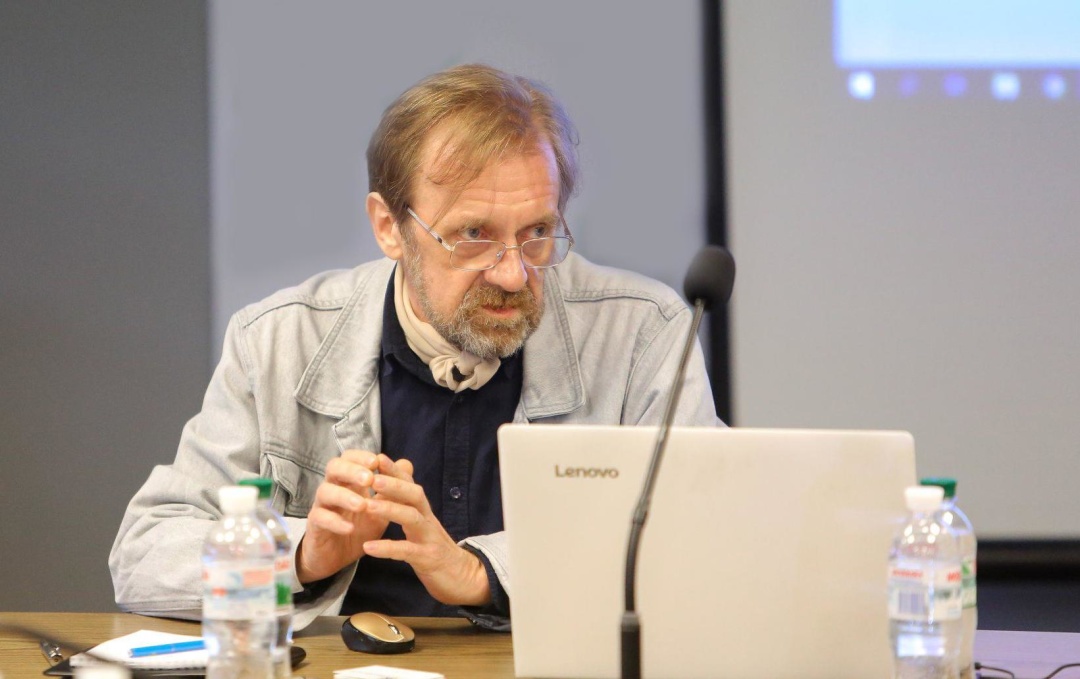
First off, Andriy Klymenko noted the Prosecutor's Office of the Autonomous Republic of Crimea and the city of Sevastopol, which takes facts from NGOs, documents them correctly from a procedural perspective, and drafts claims with international courts, based on these facts. He also praised the work of the Office of the Ukrainian President’s representative for Crimea, as well as MFA Ukraine. "However, this is not enough. If we really want to implement the Platform’s political decisions, then <…> in every Ukrainian central executive body, in every state agency or service (National Bank, Securities Commission, State Property Fund, Migration Service, etc.) there must be specialists working in departments/groups /structural units, whose functional responsibilities will be to deal exclusively with the issues of deoccupation of Crimea and nothing else.”
Klymenko is sure that independent experts will do everything possible to set up training sessions, submit their materials, and advise officials at every step…
It is also extremely important to strengthen the potential of Ukraine’s Foreign Ministry. Not intellectually (all is well in this regard), but in terms of strengthening structurally the Ukrainian diplomacy, which has a huge responsibility for the implementation of the goals and decisions of the Platform. "First of all, in countries that are most important for us in terms of implementing the goals and decisions of the Summit, we need to strengthen the staff of Ukrainian embassies, increasing their number at the expense of diplomats who would be dealing with the Crimea issue. After all, if our Foreign Ministry took the initiative to lead the sanctions sector, making a really correct decision a few months ago to set up a position of the Commissioner for Sanctions Policy at the ambassadorial level, then all this must now be strengthened by staff, budget, etc.,” said Klymenko.
And the last thing, but not the least… The document, among other things, states: "[C]ontinue implementing the policy of non-recognition of the illegal annexation of the Autonomous Republic of Crimea and the city of Sevastopol by the Russian Federation." But what is this policy of non-recognition? "So that the document doesn’t remain yet another declaration, claiming we do not recognize and will never recognize it, we need to elaborate on a dozen or two cases or, more simply, standard situations that we have already seen over more than seven years of occupation. Many remember how much effort the Ukrainian authorities made throughout these years to pass decisions to recognize the Holomodor as genocide of the Ukrainian people. It was a huge amount of efforts,” Klymenko emphasizes. In every negotiation, during every state visit, the Ukrainian side must (and so it does) ensure that the parliaments of countries, individual states or federal lands adopt resolutions in this regard. "The same work, I believe, awaits us on the non-recognition of the Crimea annexation attempt," the expert added.
It is necessary for each state at the level of government or parliament to make a decision in which they would decipher in detail what it means not to recognize the illegal annexation of Crimea. For example, this means not only to refrain from marking Crimea on maps as part of the Russian Federation. "It also means banning visits of politicians and legislators, not to recommend citizens to travel to the occupied peninsula bypassing the clearly defined rules set by Ukraine. After all, my colleagues and I often record multiple facts (and we fight against them, sometimes successfully, sometimes – not so much), where, say, the international tourist booking systems offer objects located in the occupied Crimea. And there are many more such cases. And this can’t be allowed. But for it to work out, you need to spell this all in legislation – in Germany, Poland, France, USA, Italy, and so on. So we have a lot of work ahead of us," Andriy Klymenko summed up.
Myroslav Liskovych, Kyiv
im

